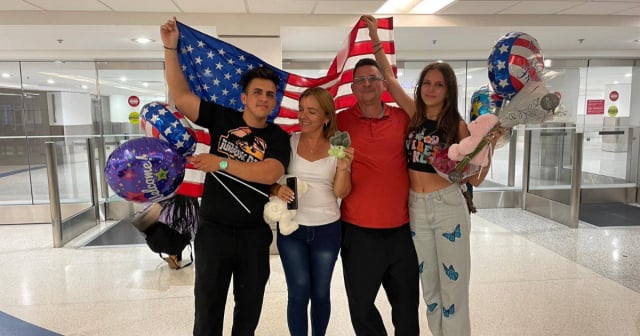Some applicants for humanitarian parole whose travel permits were denied since the program went into effect in January 2023 have received a surprising approval in recent days.
The news was announced this Wednesday by journalist Mario J. Pentón based on the testimony of some individuals who have received the joy of their lives after being denied and now, without any prior request for documentation, have been approved.
The communicator referred to two moments when there were massive denials of permits, applicants who in certain cases are now - amid the overall review of the files following the fraud report - receiving a travel authorization back.
The communicator also mentioned cases whose permits were approved, then revoked, and are now receiving authorization again.
The advice for all applicants is to review and keep a close eye on their USCIS account and their parole petitions to stay informed of any updates.
The Department of Homeland Security (DHS) announced on Thursday the resumption of the humanitarian parole program under strict security measures to prevent fraud.
The entity warned in a statement that from now on it will hold accountable those who commit fraud or try to exploit others for their own benefit with this initiative, put into effect by the administration of Joe Biden in January 2023.
According to the statement -quoted by Telemundo 51- the DHS "is committed to holding accountable those who commit fraud or attempt to exploit others for their benefit. Any person who commits fraud or other abuses will be referred to the appropriate authorities for prosecution."
They also announced that, to prevent future fraud, the entity will implement new and better investigation protocols.
This will include a partnership with the Fraud Detection and National Security Directorate of the U.S. Citizenship and Immigration Services (USCIS) and the National Targeting Center of the Customs and Border Protection (CBP).
Enhanced measures include greater scrutiny of financial records and the criminal backgrounds of sponsors, additional investigations to identify fraudulent profiles, and strengthened review methods to detect trends in serial application submissions.
In addition, DHS announced that from now on, fingerprints of sponsors residing in the United States will be required as part of the verification process.
The program, which allows applicants from Haiti, Cuba, Venezuela, and Nicaragua to live and work in the United States, was paused on August 2 after the DHS reported that it had detected a significant level of fraud in the sponsor applications.
By the end of July, a total of 110,000 Cubans had been authorized to travel to the United States through humanitarian parole, according to data from the Customs and Border Protection (CBP) Office.
What do you think?
COMMENTFiled under:
